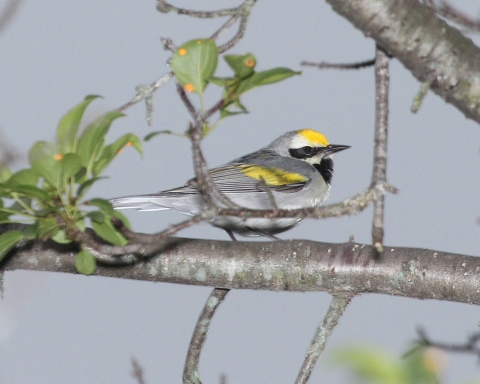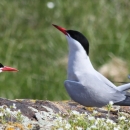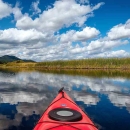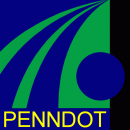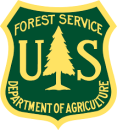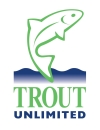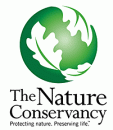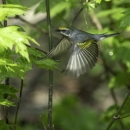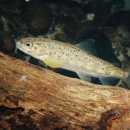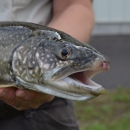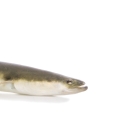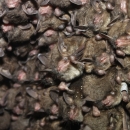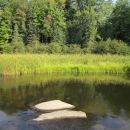The U.S. Fish and Wildlife Service has selected nine nature-based solutions projects in the northern forest, an area that encompasses land in 12 states across the Northeast and Midwest regions, and includes nearly 450,000 forested acres of U.S. Fish and Wildlife Service administered land. Projects are funded through part of a $10 million allocation through the Inflation Reduction Act — the largest climate investment in history — for resiliency and restoration in the northern forest.
These nine projects will reduce the risks and associated damages of flood and drought by restoring resilient habitats using nature-based solutions and climate adaptive infrastructure. The projects will also benefit fish and wildlife species and increase access and opportunity for recreational activities such as hunting and fishing.
Through the Bipartisan Infrastructure Law Bipartisan Infrastructure Law
The Bipartisan Infrastructure Law (BIL) is a once-in-a-generation investment in the nation’s infrastructure and economic competitiveness. We were directly appropriated $455 million over five years in BIL funds for programs related to the President’s America the Beautiful initiative.
Learn more about Bipartisan Infrastructure Law and the Inflation Reduction Act, the Department of the Interior is implementing a more than $2 billion down payment to restore our nation’s lands and waters. In March, the Service announced an investment of more than $120 million from the Inflation Reduction Act to rebuild and restore units of the National Wildlife Refuge System and partnering State Wildlife Management Areas that have been affected by adverse weather events. The investment prioritizes projects that promote coastal resilience and climate adaptation, address invasive species invasive species
An invasive species is any plant or animal that has spread or been introduced into a new area where they are, or could, cause harm to the environment, economy, or human, animal, or plant health. Their unwelcome presence can destroy ecosystems and cost millions of dollars.
Learn more about invasive species threats, and provide for additional data collection needed to support successful natural resource resilience.
The northern forest projects represent a unique opportunity to address important ecosystem restoration needs and are designed to reduce the impacts of climate change climate change
Climate change includes both global warming driven by human-induced emissions of greenhouse gases and the resulting large-scale shifts in weather patterns. Though there have been previous periods of climatic change, since the mid-20th century humans have had an unprecedented impact on Earth's climate system and caused change on a global scale.
Learn more about climate change to an ecosystem which is home to essential wetland and floodplain habitats, and to people who live there.
Northern forest project list
| Project Name | State | County | Funding as of 3/14/24 |
|---|---|---|---|
| Tamarac National Wildlife Refuge Wild Rice Restoration and Reforestation | MN | Becker | $750,000 |
| Beltrami Wildlife Management Area Peatland Restoration | MN | Lake of the Woods, Roseau, and Beltrami | $1,000,000 |
| Rice Lake National Wildlife Refuge Emerald Ash Borer Adaptation and Wild Rice Resiliency | MN | Aitkin | $760,000 |
| Necedah National Wildlife Refuge Forest Wetland and Peatland Restoration | WI | Juneau | $1,200,000 |
| Seney National Wildlife Refuge Hydrological and Hydraulic Design for Climate Informed Actions | MI | Schoolcraft | $400,000 |
| Erie National Wildlife Refuge Impoundment Removal and Wetland Restoration | PA | Crawford | $900,000 |
| Silvio O. Conte National Fish and Wildlife Refuge Complex Aquatic Connectivity and Forest Restoration | VT | Essex | $1,300,000 |
| Umbagog National Wildlife Refuge Aquatic Connectivity and Forest Restoration | NH, ME | Coos, Oxford | $1,400,000 |
| Moosehorn National Wildlife Refuge / Maine Coastal Islands National Wildlife Refuge Complex Aquatic Connectivity and Forest Restoration | ME | Washington | $1,400,000 |
Through these investments, the Service is working with state partners to complete geographically diverse, large-scale projects that are mutually beneficial for these conservation areas, including projects that benefit underserved communities and Tribal interests. The program supports the Biden-Harris administration’s America the Beautiful Initiative, a decade-long challenge to pursue locally led and voluntary conservation to protect, conserve, connect, and restore our nation’s lands, waters, habitats and wildlife.
Learn more information about the our Inflation Reduction Act-related efforts.

